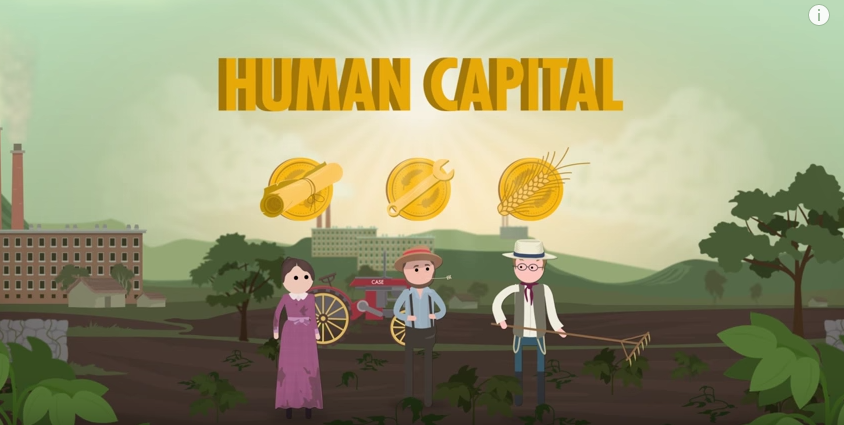It’s about inflation and bubbles. I’ll try to get my response up ASAP. Until then, what do you think?
Category: Uncategorized
Does Economics Not Apply to Whole Foods?
It’s been a while since the last Crash Course video, and since I can admit that I have no idea what their release schedule looks like, our wait until the next video could be a few hours or a couple weeks. In the meantime, I’ll try to keep posting about smaller points made in the videos or the progress of the site in general.
Way back in video #4 (Supply and Demand), Adriene was talking about the price of strawberries:

The price of strawberries isn’t always $3; sometimes it goes up to $6, and at Whole Foods, local, artisanally grown strawberries, the fancy fancy strawberries, can cost upwards of $12. But I guess Whole Foods is a whole other world where price has nothing to do with realistic economics.
I imagine that Adriene meant to say that the demand for goods at Whole Foods is generally inelastic, meaning that a small increase in the price won’t drive away that many customers. People who shop at Whole Foods (since it’s a premium-priced grocery store) aren’t as sensitive to price increases as people who, for example, shop at Wal-Mart or Costco. At Wal-Mart or Costco, price very much affects customer decisions, and if you increase the price of strawberries at these places, you are likely to drive away a lot more customers (in this case, the demand would be elastic).
In fact, Whole Foods is aware of this phenomenon, as in some cases, they charge more for the same good that you could find at your normal grocery store. Still, realistic economics still do apply to Whole Foods, and there is a price point where Whole Foods will drive away too many customers to be profitable.

A distinction that needs to be drawn is that the strawberries at Whole Foods are not the same goods as the strawberries that you find at Wal-Mart. Fancy, organic Whole Foods strawberries cannot be put on the same graph as normal, widely-distributed strawberries because they are not interchangeable; much more cost goes into producing the Whole Foods strawberries. People generally value the Whole Foods strawberries more than they do the other strawberries.
Conversely, a box of Froot Loops at Whole Foods is identical to the box of Froot Loops at Wal-Mart because they are produced identically, and one could not tell the difference between the two.
Economics applies to all goods and services, fancy goods included.
Human Capital and Education
In the most recent episode of Crash Course Economics, our co-host Mr. Clifford mentions the importance of a particular type of capital: Human Capital.
As Mr. Clifford explains it:

One special type of capital is the workers’ education, knowledge, and skills required to produce things. Economists call this human capital. So school’s not just about torturing you (except for PE), it’s about developing your human capital. The quantity and quality of these resources is the first step to being more productive, but perhaps even more important is how you use them.
As a high-school teacher himself, no doubt Mr. Clifford sees the importance in making sure young adults have the skills to be productive in the working world. I saw this part of the video as being a motivator for kids to stay in school and go to college, but maybe not. I’ve often hear the arguments for more government investment into education as an investment in capital; sure, it costs money, but our future generations will be smarter and more productive, thus benefitting society tremendously down the road.
Besides people’s issues with taxation in general, does college really give you better skills to make you more productive? Degrees are not skills, and there are only a few majors that I can think of that make students more skilled and productive for the labor market.
Mr Clifford is right. Developing skills is incredibly important, and from what I’ve read, the job market’s most desired skills are related to Information Technology and Engineering. With the internet reducing the need to get an education in a physical classroom, there are a lot of options for people to develop skills without spending four years in a university. I would check out options like Code School and Coursera to start, but some googling research will probably tell you exactly what you need to be in the profession you are interested in the most. Unfortunately, something you may actually need to qualify is a degree from a 4-year college.
Did your college/university give you skills for the working world? If so, what were the classes? Does college provide you with any other skills that I’m missing. Do you have any other suggestions for skills-building resources? Drop your answers in the comments.
Episode #6 Already Out!
Man, was I wrong. I now have no idea how Crash Course plans to schedule the release these videos. After a gap of over 2 weeks before episode #5, they release #6 just four days later. I’ll try to find the answer and let you know ASAP. I know you value predictability, and so do I.
Episode #5 is Here
Take a look and tell me what you think upon first watch. While the show’s creator didn’t respond to me, it looks like they are releasing episodes every two weeks, which means this series will be going on for nearly 18 months. Crash Course Criticism will be here until the end!
-Gary
Episode #3 is Finally Here
Fasten your seat belts, this one has a lot to unpack:
A day late (a week and a day, really), but this one has enough content to keep CCC busy for weeks. I’ll have a response post up ASAP.
Upon first watch, what surprised you? What did you like? What disappointed you? Drop your impressions in the comments.
Karl Marx Bust on the Crash Course Desk
Things have been slow here at CCC since last week’s video was pushed back until this coming Wednesday, so I thought I’d take a second to point out something that someone in the YouTube comments noticed about the on-camera desk space at Crash Course:
Behind Adriene you can see a slot machine (I suppose signifying the seemingly random and potentially profitable possibilities in predicting the economy), an abacus (can’t really explain that; that’s more mathematics than anything), a safe or something with a red button (that can’t possibly be referring to Rothbard’s button), and a bust of Karl Marx.
Will we have a full episode dedicated to Communism and Karl Marx? Will there be other episodes dedicated to other economics schools of thought? CCC certainly hopes so.
*Also notice the standard black faux-wooden desk, which I’m pretty sure is from IKEA.
